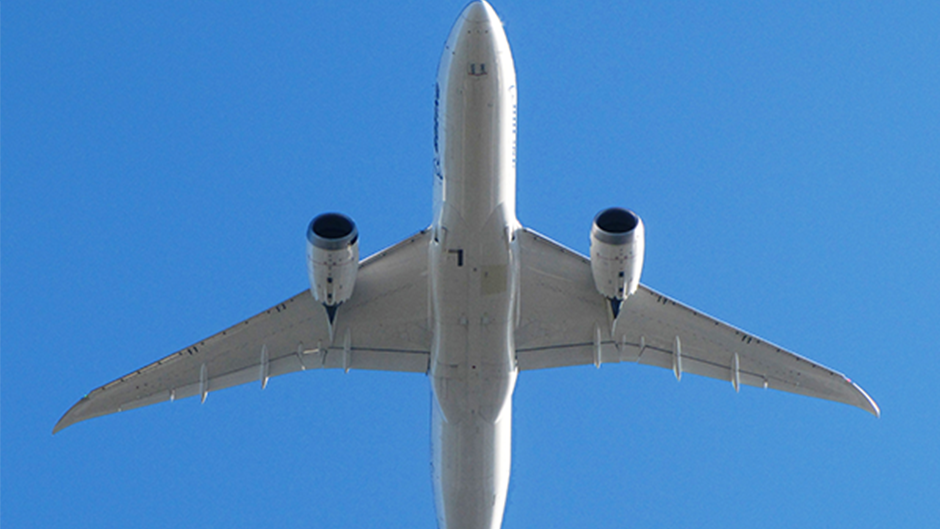The University of Miami College of Engineering (UM CoE) has received a grant from Boeing – the world’s largest aerospace company and leading manufacturer of commercial jetliners, defense, space and security systems – to develop, implement and evaluate a composite analysis tool that officials believe will lead to improved predictions to the safety and durability of aircrafts.
Qingda Yang, a professor in the CoE’s Department of Mechanical and Aerospace Engineering, will lead the project.
The composite usage in Boeing’s newest commercial airplane – the 787 Dreamliner – is about 50 percent by weight. As a result, the uncertainty associated with the long-term durability of such composite airplanes remains largely unanswered due to insufficient real-life data due to the short service life thus far, as well as the uncertain impact of progressive damage in major, load-bearing composite components.
The A-FEM based progressive damage analysis platform Yang’s group has been developing during the last ten years shows the potential to deliver high-fidelity damage predictions with minimal calibration data.
“At the end of the research, Boeing wants to understand and have confidence that our analysis can be used to predict the life, remaining strength and remaining stiffness of composite airframe structures,” Yang said. “This effort is in support of all current and future composite airplanes.”
The research consists of development, implementation, and evaluation of a 3D composite Progressive Fatigue Failure Analysis (PFFA) using Augmented Finite Element (A-FEM). The goal is to develop a reliable 3D composite PFFA tool in order to predict life, residual strength and residual stiffness of laminated composite structures under cyclic thermal and mechanical loading.
In other major research wins, Yang has previously received funding from federal agencies such as the National Science Foundation, NASA, Air Force Research Laboratory, United States Army Research Laboratory, United States Navy and Defense Advanced Research Projects Agency, as well as industrial companies including Teledyne and Boeing.
“It’s important for university researchers to work hand-in-hand with engineers in industrial companies to ensure that their work has impact beyond classroom walls, including helping our students land important jobs in those industry sectors,” said Yang. “Further developing a capability to predict composite strength and durability, is bound to have industry-wide implications.”

